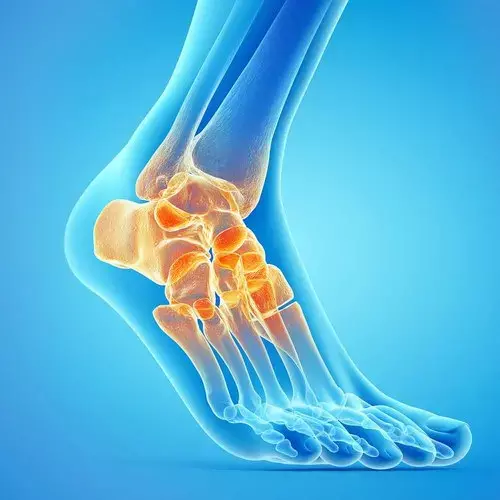- Home
- Medical news & Guidelines
- Anesthesiology
- Cardiology and CTVS
- Critical Care
- Dentistry
- Dermatology
- Diabetes and Endocrinology
- ENT
- Gastroenterology
- Medicine
- Nephrology
- Neurology
- Obstretics-Gynaecology
- Oncology
- Ophthalmology
- Orthopaedics
- Pediatrics-Neonatology
- Psychiatry
- Pulmonology
- Radiology
- Surgery
- Urology
- Laboratory Medicine
- Diet
- Nursing
- Paramedical
- Physiotherapy
- Health news
- Fact Check
- Bone Health Fact Check
- Brain Health Fact Check
- Cancer Related Fact Check
- Child Care Fact Check
- Dental and oral health fact check
- Diabetes and metabolic health fact check
- Diet and Nutrition Fact Check
- Eye and ENT Care Fact Check
- Fitness fact check
- Gut health fact check
- Heart health fact check
- Kidney health fact check
- Medical education fact check
- Men's health fact check
- Respiratory fact check
- Skin and hair care fact check
- Vaccine and Immunization fact check
- Women's health fact check
- AYUSH
- State News
- Andaman and Nicobar Islands
- Andhra Pradesh
- Arunachal Pradesh
- Assam
- Bihar
- Chandigarh
- Chattisgarh
- Dadra and Nagar Haveli
- Daman and Diu
- Delhi
- Goa
- Gujarat
- Haryana
- Himachal Pradesh
- Jammu & Kashmir
- Jharkhand
- Karnataka
- Kerala
- Ladakh
- Lakshadweep
- Madhya Pradesh
- Maharashtra
- Manipur
- Meghalaya
- Mizoram
- Nagaland
- Odisha
- Puducherry
- Punjab
- Rajasthan
- Sikkim
- Tamil Nadu
- Telangana
- Tripura
- Uttar Pradesh
- Uttrakhand
- West Bengal
- Medical Education
- Industry
Intra-Articular Sodium Hyaluronate Injection may improve pain and function in Ankle Osteoarthritis

Republic of Korea: Intra-Articular Sodium Hyaluronate Injection may improve pain and function in Ankle Osteoarthritis, according to a new study appearing in the Journal of Foot & Ankle Surgery.
Various nonoperative treatments have been implemented to reduce pain and improve the quality of life in patients with ankle osteoarthritis.
Hyaluronate (HA) is an endogenous material with viscous and elastic properties in the synovial fluid and acts as a shock absorber in joints. In osteoarthritic joints, the concentration of HA decreases, which is possibly associated with increased susceptibility to articular cartilage damage. Thus, viscosupplementation with intra-articular HA injection can restore the viscoelastic property of the synovial fluid, normalize endogenous HA synthesis, and inhibit HA degradation.
Gun-Woo Lee et al conducted a study to evaluate the efficacy and complications of ankle inta-articular hyaluronate injection using various clinical scoring systems.
The inclusion criteria were as follows:
(1) symptomatic unilateral ankle osteoarthritis without significant benefit from oral analgesics/NSAIDs and/or ankle braces.
(2) grade 2 or 3 ankle osteoarthritis on weightbearing radiography according to the Takakura classification.
(3) a minimum follow-up of 6 months after the last HA injection.
(4) normal physical activity without mobility aids.
(5) no history of intra-articular corticosteroid injection within the previous 6 months of the first HA injection.
(6) patients willing to discontinue all NSAIDs or other analgesic medications from the first HA injection until at least the third HA injection.
Patients were excluded from the trial if they had any of the following: secondary osteoarthritis due to osteonecrosis or other systemic arthropathies, chronic lateral ankle instability, and previous history of ankle fracture and deformity of the ankle.
3 weekly hyaluronate injections (2 mL Hyruan Plus) were administered to 37patients included in the study.
The efficacy of intra-articular hyaluronate injection was evaluated on the basis of patient-reported foot and ankle clinical assessment at a mean follow-up of 13.8 +/- 8.3 (range 6-33) months.
Results:
• Ankle Osteoarthritis Scale scores for pain and disability, American Orthopedic Foot and Ankle Society ankle-hindfoot scores, and visual analog scale for pain significantly improved at the final follow-up compared to that before intra-articular hyaluronate injection (p ≤ .05).
• No major complications such as deep infection and neurovascular injury occurred.
• Arthralgia and swelling that occurred after HA injection were all recovered within 2 weeks after injection, but numbness at the injection site lasted up to 1 month.
• When patients were dichotomized according to age, sex, body mass index, symptom duration, and Takakura classification, all these factors were not related to clinical outcomes.
The authors concluded that 3 weekly intra-articular hyaluronate injections can be performed safely to reduce pain and improve function without serious complications in patients with early or intermediate-grade ankle osteoarthritis when patients inadequately respond to medication.
Larger controlled studies are needed to clarify the effects of hyaluronate injection and identify patients who can benefit most from hyaluronate injection.
Further reading:
Effects and Safety of Intra-Articular Sodium Hyaluronate Injection for the Treatment of Ankle Osteoarthritis: A Prospective Clinical Trial
Gun-Woo Lee, Woo Kyoung Kwak, Keun-Bae Lee.
The Journal of Foot & Ankle Surgery 61 (2022) 345−349
https://doi.org/10.1053/j.jfas.2021.09.012
MBBS, Dip. Ortho, DNB ortho, MNAMS
Dr Supreeth D R (MBBS, Dip. Ortho, DNB ortho, MNAMS) is a practicing orthopedician with interest in medical research and publishing articles. He completed MBBS from mysore medical college, dip ortho from Trivandrum medical college and sec. DNB from Manipal Hospital, Bengaluru. He has expirence of 7years in the field of orthopedics. He has presented scientific papers & posters in various state, national and international conferences. His interest in writing articles lead the way to join medical dialogues. He can be contacted at editorial@medicaldialogues.in.
Dr Kamal Kant Kohli-MBBS, DTCD- a chest specialist with more than 30 years of practice and a flair for writing clinical articles, Dr Kamal Kant Kohli joined Medical Dialogues as a Chief Editor of Medical News. Besides writing articles, as an editor, he proofreads and verifies all the medical content published on Medical Dialogues including those coming from journals, studies,medical conferences,guidelines etc. Email: drkohli@medicaldialogues.in. Contact no. 011-43720751


